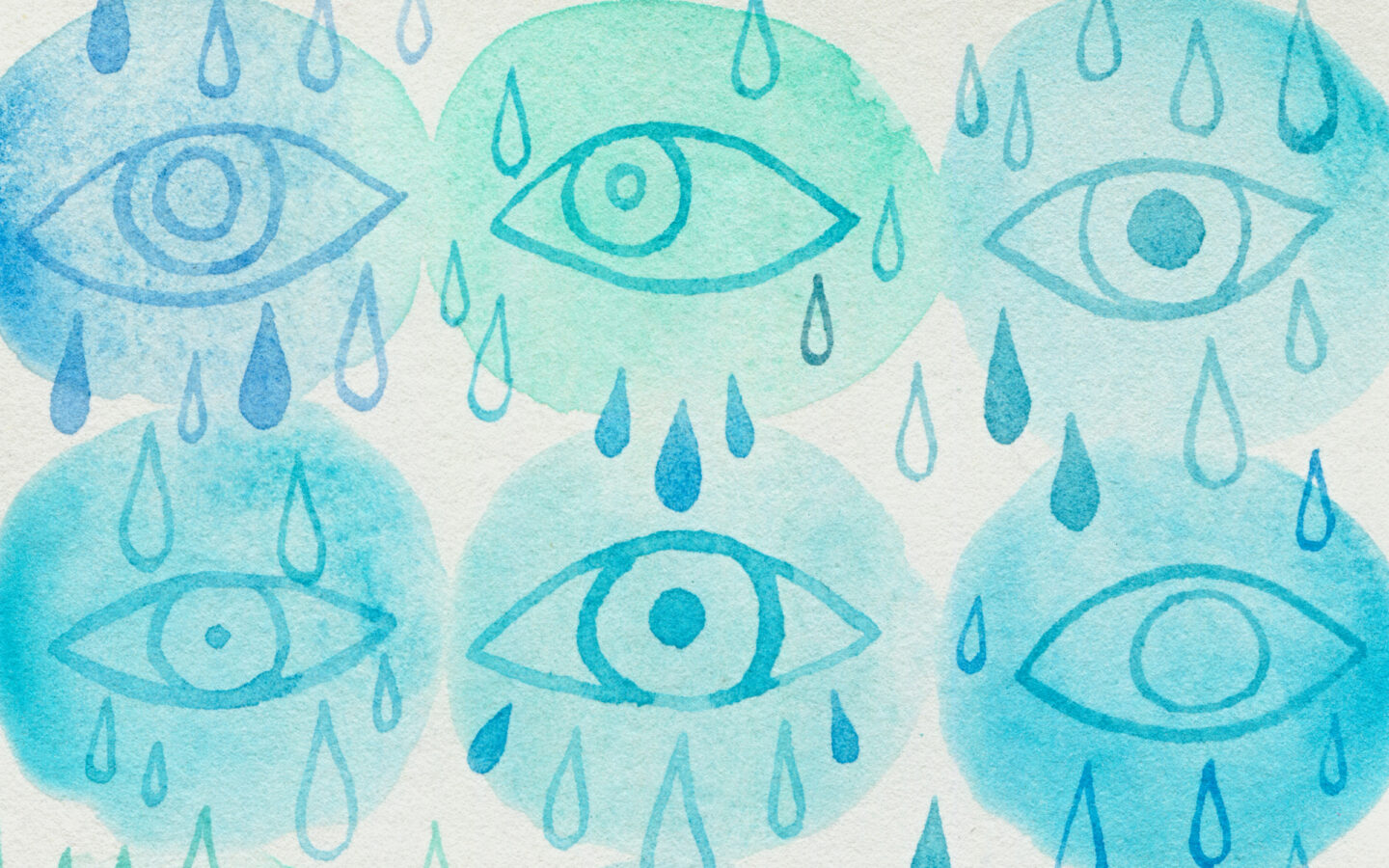- As nurses, we’re at high risk for burnout—but that doesn’t mean burning out is inevitable
- Ignoring early symptoms makes it harder for us to recognize and respond to our needs, and more likely that we will hit a crisis point
- The more burned out we are, the more likely it is that we will leave the profession for good
- Tuning in earlier and taking proactive steps to combat burnout can help us stay ahead of burnout and allow us to keep doing the work we love
Do you wake up exhausted, already dreading your shift? Do you ever find yourself counting down the minutes until your shift ends, or the hours until your next day off? Do you sometimes feel anxious or resentful when you think about your workplace, colleagues or patients?
Don’t panic, you aren’t alone. As nurses, we’re at higher risk for job burnout, which can manifest as emotional or physical exhaustion, negativity, irritability or loss of energy, trouble concentrating and even depression.
Burnout can seem inevitable, and sometimes, it can feel like the only way to fix the problem is to get out for good. Even before the pandemic, one survey found almost half of nurses were considering leaving the profession. So having these thoughts is normal—but it doesn’t mean you aren’t meant to be a nurse.
Looking to the exit is natural, but not always necessary
According to BMC Health Services Research, a desire to change one’s environment is a natural response to burnout, and if finding a new specialty or setting doesn’t help, leaving the profession altogether is often a nurse’s next step.
Like most nurses, we’ve definitely spent a commute or two daydreaming about what life might look like if we took an office job or started waiting tables. And indulging in a fantasy now and again never hurt anyone. But burnout can intensify these thoughts, and if your desire to leave nursing is getting stronger, you might be close to a crisis point.
Don’t lose hope, though, SHIFT Talkers. It is possible to reverse a trend toward burnout over time, by catching it earlier and responding to it more effectively.
Catch it early
Before we get to interventions, we have to talk timing. We can’t wait until the burnout alarm is blaring. We have to start addressing it much, much earlier.
Let’s set the scene—you’re just starting to feel the early signs of burnout. The signs you barely even notice—the signs that just feel like part of the job.
A burnout study from Winona State University outlines five phases of burnout, which is a useful framework for nurses.
- The honeymoon phase: High rates of job satisfaction, energy and creativity.
- The balancing act: Some days are clearly better than others. Fatigue and dissatisfaction are on the rise.
- Chronic symptoms: Dissatisfaction, fatigue, sleep disturbances and/or physical illnesses intensify.
- Crisis point: The above symptoms become critical. It’s official. You’re burned out.
- Enmeshment: This is when the symptoms become so embedded that “you are more likely to be labeled as having some significant physical or emotional problem than you are to be called a burnout case.”
OK, yikes!
If our goal is to avoid crisis and ultimately enmeshment, we have to start tuning in when we hit “the balancing act.” Think of this as your burnout crossroads. You’re not 100% there, no. It’s not a crisis. But your burnout temperature is rising. You can suppress it for a couple more shifts, even a couple more weeks or months, but not forever. Unless you break the cycle, your symptoms will intensify, and solutions will feel further out of reach.
The alternative? Take action before you take leave of nursing. Here are three steps to get you started on a more sustainable path.
1. Hit “reset”—right now
To get out of the burnout cycle, we have to do something different. Many nurses work a few days on and a few days off, and it can be tempting to just assume that those breaks will give you the rest you need. But remember—that schedule is to account for the very long days you already work. Those breaks are actually a part of the cycle, not a solution to the problems that come with it. They may give you the breathing room to make it through the next few shifts, but that’s not the same as a truly restorative break.
Taking time off—an extra-long weekend, a full vacation, whatever you need and whatever is realistic within the context of this pandemic—before you’re at your breaking point is a necessary, preventative measure to fight burnout.
And we really encourage you to actually put in your request or share your time-off plan with a supervisor the day you make it. It will keep you accountable when something comes up or a coworker asks you to pick up a shift on the day you planned to rest. It can also help you feel empowered and give you something to look forward to when fatigue or anxiety is setting in.
2. Embrace boring self-care
It will feel good, maybe even great, to reset, but your work is not done. Fighting burnout is a long game. Think of your time off as an important first step that sets you up to succeed.
From there, you can then better manage the ebbs and flows of burnout by genuinely and regularly prioritizing self-care. Specifically, what we call boring self-care.
We love boring self-care because it’s practical. Even if a two-hour bubble bath or expensive spa treatment was the guaranteed cure for burnout, who among us could take advantage?!
Boring self-care means prioritizing yourself in small, manageable and necessary ways. This might mean buying a new water bottle to help you stay hydrated. It might mean signing up for grocery delivery or a meal prep service. It can even be folding some laundry or emptying the dishwasher.
But don’t get it confused with your to-do list. These have to be things you want to do, that reduce your stress. And there’s some neuroscience at play here, too. According to a study in the International Journal of Environmental Research and Public Health, proactivity off the job is linked to lower levels of burnout.
Consider setting a timer for 5 or 10 minutes before or after every shift, and spend that time taking care of a couple things that will ease your mental load. Pay a bill, call your mom, schedule a therapy appointment, or just lie on the floor (we’re not judging). Whatever it is, challenge yourself to do at least one little thing for yourself every single day.
3. Call in the cavalry
Resets are key, and regular self-care following a reset can help replenish the reserves you need to keep burnout at bay.
But if you’re truly dreading work, fantasizing about leaving often, or otherwise reaching a breaking point, it’s time to involve others. We aren’t saying that it’s never appropriate to change jobs. Sometimes, a change is necessary to find the right fit. But switching jobs in response to burnout is a short-term solution to a long-term problem.
Investigate your EAP
In fact, it’s really critical to connect with HR (or your nursing association, or a peer group) before making any big decisions—like a career shift. Beyond time off or health coverage, you likely have access to an employee assistance program (EAP). These voluntary programs offer confidential support for everything from depression, stress and anxiety to trauma recovery and substance misuse challenges. Services may include things like meditation and mindfulness courses, credits to attend online self-care or resilience training, retreats or behavioral telehealth access for regular therapy sessions.
Seek out special resources
Trenda Ray, chief nursing officer and associate vice chancellor for patient-care services at the University of Arkansas for Medical Sciences, uses the Schwartz Rounds Program to fight nurse burnout in her organization. Developed by the Schwartz Center for Compassionate Healthcare, Schwartz Rounds provides a safe space for caregivers to share their experiences with grief and fatigue, discuss the challenges of health care and, in some cases, help push for changes at the departmental or hospital-wide level to improve conditions for patients and providers. Systemwide change? Count us in! Your workplace may not have something exactly like this, but many do have programs or resources available. You can also check out some of the resources listed below from organizations like the National Wellness Institute and Healthy Nurse, Healthy Nation.
Beyond asking about resources, it’s just useful to raise the flag with your supervisors and HR team that your tank is running low. Your organization can’t help if they don’t know.
This applies to your fellow nurses, too. At the end of the day, nursing is a team sport. Lean on your colleagues to help you when you start to feel burned out and help them in return. In fact, studies show that nurses who are able to draw on higher levels of support from their co-workers experienced lower levels of emotional exhaustion.
Nurses know as well as anyone—an ounce of prevention is worth a pound of cure. So gather up your nurse gang, SHIFT Talkers, and continue the conversation about concrete actions you can take to help yourselves and each other.


